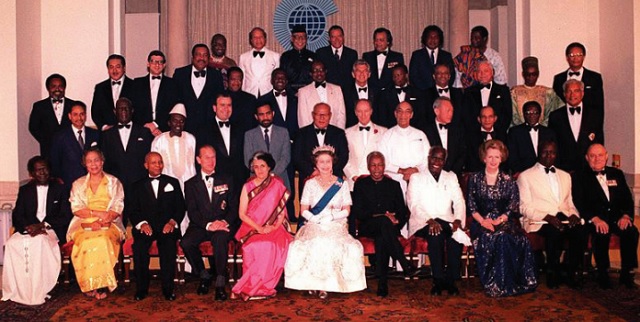
By the 1870s, Britain was under serious threat from the rising powers of France and Germany in Europe.
With industrial, military and scientific eclipse beckoning, the empire needed to become a state, refocusing its energies on dominating the near seas and ensuring the balance of power in Europe. Instead, its energies were dissipated at the edges of empire. Where it should have been concentrating its power in Europe, Britain suffered humiliating defeats at the hands of the Afghans in 1878 and the Zulus in 1879.
So it was for the dominions. By the early 20th century, Australia and New Zealand were rightly preoccupied by competition from rising powers in the Pacific.
Never was there a greater need to manage relations and build their own defences and military capabilities. Yet they remained tied to the foreign policy of empire, even as the empire entered an alliance with Japan, the country that most worried them, and then granted it the right to retain the Carolines and Marshall Islands in the Central Pacific after the First World War.
At the Washington Naval Conference of 1921, dedicated to finding a solution to the rising rivalry in the Pacific, the antipodean dominions chose meekly to be represented by the empire.
The Depression provided an opportunity for the Commonwealth to become a genuine society brought together for the common good. But when the dominions and Britain came together at Ottawa in 1932, the result was acrimony and hard, self-interested bargaining.
The real power of the name was revealed in 1949. India, the country that had shed more blood for the empire than any other, and that had just wrenched itself free of the Empire’s grasp, became a republic. And yet it chose to retain the mystical connection, opting to remain within the Commonwealth.
In the decades that followed, the Asian and African colonies never even thought of as part of the original Commonwealth compact in 1917 also chose enthusiastically to remain part of the mystical association.
By the 1960s, they were to turn an imperial club into a radically anti-racist force, taking the Commonwealth to the apex of its history in its campaigns against Rhodesia and apartheid.
Now, the Commonwealth’s once most oppressed societies are its most ardent supporters. Surveys show the most positive feelings about the Commonwealth are among those societies Deakin placed emphatically in the “ruled” category.
An organisation lacking a rationale
Today the Commonwealth exists as an organisation in search of a rationale. The mythology of the name has done its job: what brings the association together now is an act of forgetting what constructed it in the past.
Its bonds are not hard objectives of modern statecraft but a subterranean sentimentality of connectedness; it endures in its benignity because no-one has the heart to kill it off.
Its secretariat, a recent eminent persons’ group report, and the biennial meetings of its leaders all desperately try to find a rationale for its existence, loading fashionable issue after fashionable cause on its ramshackle shoulders from green finance to fair trade.
It is hard to find an issue on which the Commonwealth has succeeded in bringing about genuine change since the demise of white rule in southern Africa.
When this coalition of whimsy meets a hard policy issue, its solidarity falls victim to its diversity, while its breadth of membership can’t deliver real weight and gravitas in the present day.
Where then does the Commonwealth sit, in the company of Persepolis and history’s empires? Surely as the last empire the one that turned that word from a label of pride to one of accusation.
An empire determined to destroy and delegitimise the idea of empire itself.
An empire dedicated to the puncturing of its own pretensions to grandeur and permanence, under the reassuring myth of a mystical Arcadian community of free association.
Surely this is the enduring legacy of the British Empire which is still so potent. We search in vain for the beginning of the unraveling; nor can we date its end.
Perhaps it continues, as Scotland, Wales and even England begin to assert themselves against the British Union as the original free association in the common interest.
Michael Wesley is Professor and Director of School of International Political and Strategic Studies, Australian National University.
*****
Source: theconversation
 The Independent Uganda: You get the Truth we Pay the Price
The Independent Uganda: You get the Truth we Pay the Price





